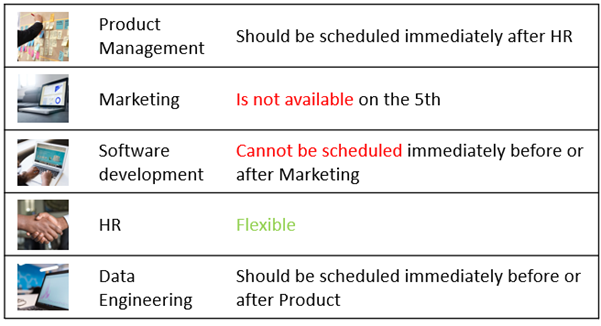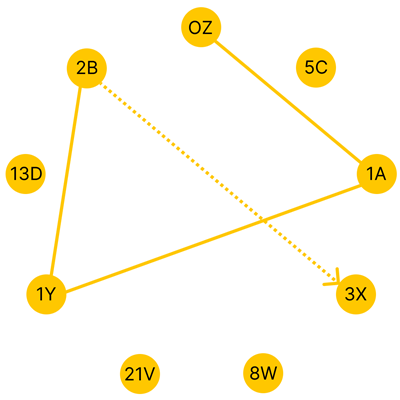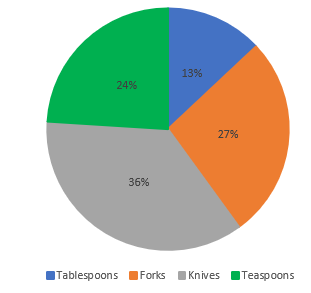What Is The SHL Assessment Test?
The SHL Assessment is a well-known pre-employment test provider built to measure multiple skills required for various positions worldwide.
There is not just one SHL Test. In fact, SHL offers a library of assessments that include both assessments of cognitive abilities and personality tests.
The most common cognitive SHL tests are the SHL General Ability, Numerical Reasoning Test, Inductive Reasoning Test, and Deductive Reasoning Test. The most common personality assessments by SHL are the SHL Occupational Personality Questionnaire and the SHL Situational Judgment Test.
- General Ability Test: also known as the verify G+ test, it includes numerical and logical questions and has an interactive and a non-interactive version.
- SHL Numerical Reasoning: This test evaluates the ability to interpret and analyze numerical data, including graphs, tables, and charts.
- SHL Verbal Reasoning: This test evaluates reading comprehension, analysis, and interpretation of written information.
- SHL Inductive Reasoning: This test assesses the ability to identify patterns and logical rules in sequences or sets of data to predict the next item in a series.
- SHL Deductive Reasoning: This test evaluates the ability to recognize patterns and logical rules based on the given information, demonstrating the ability to think logically and make sound deductions.
- Personality Assessments (OPQ32): This test provides insights into a candidate's personality traits, work preferences, communication style, and interpersonal skills.
- Situational Judgment test (SJT): This test evaluates decision-making skills by presenting candidates with realistic workplace scenarios and assessing their ability to identify appropriate responses or courses of action.
- SHL Calculation Test: This is an evaluation of your ability to perform swift and accurate mental arithmetic.
- SHL Checking Test: A type of clerical exam intended to ascertain your attention to detail.
- SHL Mechanical Comprehension Test: An evaluation of your understanding of mechanical principles and how they apply in technical work environment.
- Aspiring Minds (AMCAT) - an employability test operated by SHL for the Indian job market.
Companies utilizing SHL use the Talent Central evaluation software to view candidate profiles.
SHL Tests Sample Questions
Whichever SHL test you are slated to sit, get a feel for the real test by answering these simulated SHL Test questions. The first three questions are taken from the SHL Verify Interactive test.
(psst... you can find more accurate practice tests for the SHL Tests on our practice pack)
SHL Numerical Reasoning Practice
If you'd like to experience the style and feeling of the actual SHL Numerical Interactive test, you can take our quick simulation, or scroll down for non-interactive sample questions.
Utensil Cost
You recently moved and decided to buy new utensils. The prices are as follows:
|
Fork Amount: 25 |
Knife Amount: 28 |
|
Teaspoon Amount: 26 |
Tablespoon Amount: - |
*Note: In the interactive format of the test you will have to adjust the pie chart based on your calculations.
Calculate the percentage each type of utensil will cost you if you bought a total of 88 utensils. (rounding to the nearest whole number only in the last step).
SHL Aptitude tests that include interactive numerical reasoning questions like this one are the General Ability Test and the SHL Numerical Reasoning Test.
There are five types of interactive numerical questions. Pie charts, which you have just experienced, line charts, column charts, number range, and ranking. You can find out more about these on our SHL Prep Course.
Numerical Reasoning Tests are challenging, and practice can impact performance significantly.
Learn more about Numerical Reasoning tests, or try out our Free Numerical Reasoning Practice Test.
SHL Deductive Reasoning Practice
Team Training - Schedule
Next month each team will spend four consecutive weekdays with an organizational psychologist for a team training and development session. Sessions cannot be scheduled at the same time.

When does the Marketing department start and finish their training period?
| SUN | MON | TUE | WED | THU | FRI | SAT |
|
27 |
28 | 29 | 30 | 31 | 1 | 2 |
| 3 | 4 | 5 | 6 | 7 | 8 |
9 |
| 10 | 11 | 12 | 13 | 14 | 15 |
16 |
| 17 | 18 | 19 | 20 | 21 | 22 |
23 |
| 24 | 25 | 26 | 27 |
28 |
1 |
2 |
*Note: In the interactive format of the test you will have to select your response by clicking the dates that fit.
Questions like this appear on two types of SHL Deductive Reasoning Tests: The Verify G Test (General Ability) and the SHL Deductive Reasoning. Aside from Calendar Questions, You will also find Ordering questions and Daily Schedule questions.
What makes deductive skills assessments challenging is the need to understand many different pieces of information and keep them in mind all while searching for the answer. Practice Assessments can help sharpen this ability. You can find them on our Prep Course.
SHL Inductive Reasoning Practice
Alphanumeric Sequences
Complete the sequence and connect the nodes by writing the numbers from 1 to 10 in the blanks below the node you wish to connect next. The first three nodes in the sequence are already numbered correctly.

*Note: In the interactive format of the test you will have to connect the nodes yourself, using the mouse.
SHL Assessments which include interactive inductive questions like this are the SHL Inductive Reasoning Test and the General Ability Test.
Besides Alphanumerical Sequences, there are two other types of inductive questions: Next in Series, and Rules Combination. Their common trait is that they require you to draw conclusions from existing information to find the correct answer.
Practice all Inductive Reasoning Test question types on the SHL Prep Course.
SHL Verbal Reasoning Test Questions
While the numerical, deductive, and inductive SHL tests are the most common SHL psychometric tests, the verbal reasoning test comes in at a very close fourth.
You will likely encounter this SHL assessment if you are trying for a position emphasizing the importance of interpersonal communication and following written instructions. The test differs from other verbal reasoning tests in its strict time limit and the requirement not only to understand written text but also to make logical inferences.
On the Verbal Reasoning Test, you will face short passages with information about a specific subject. You will then have to answer multiple-choice questions about the passage.
Each question will comprise a statement that relates to the text. You will have to determine whether the statement is TRUE, FALSE, or CANNOT SAY (meaning it can't be proven as either right or wrong based on the passage alone).
The Verbal Reasoning Test is a fast-paced and challenging SHL Assessment. It requires you to stay level-headed and focused as you deal with large amounts of information.
The SHL Verbal Reasoning Test is covered in our all-inclusive SHL Prep Course.
Learn to Pass SHL Tests With Our Practice Tests
We have been preparing candidates for the SHL Assessments for over five years. Our rigorous research has helped us create the most comprehensive and accurate course online.
Most candidates have only a few days to prepare for the SHL Tests. Our goal is to get you comfortable with SHL questions quickly and efficiently. We do so by going over the theory behind every question type.
Our comprehensive SHL Assessment PrepPack includes:
Full Simulations
Answers and Explanations
Detailed Reports
Video, PDF, and Interactive Guides
110 Practice Tests & Simulations
1000+ Questions
Customer Testimonials
The SHL Occupational Personality Questionnaire
The Occupational Personality Questionnaire is a personality test measuring a candidate's traits, inclinations, and leadership abilities by ranking them on 32 fundamental personality characteristics. This has earned it the name OPQ32.
The questions on the OPQ32 are forced-choice. This means that, rather than ranking yourself on one trait at a time, each question will force you to choose between two equally desirable traits. You must indicate which of the traits is more representative of you.
For example, you might be asked which of the following describes you better:
- I believe I am insightful and fair in my judgments.
- I am driven and always push myself to reach my goals.
There are two versions of the OPQ32, the OPQn and OPQr.
Other SHL Tests
The SHL General Ability Test is SHL's hallmark cognitive abilities test. However, many other assessments are offered by the company, such as:
- Language Proficiency tests - Exams that assess candidates based on their ability to express themselves and understand others in a certain language.
- WriteX - This test assesses your ability to write emails to clients.
- SHL Professional 7.0 - a personality and judgment test which evaluates your work style, work habits, and professionalism.
- SHL Situational Judgement Test - a test that describes a complete scenario with a professional dilemma, and asks test takers to identify the best way to move forward in such a scenario.
- SHL Video Interview - The SHL On-Demand Smart Interview is an AI-driven interview platform powered and distributed by SHL, often alongside other assessments.
What is the Best Way to Study for SHL?
Preparing for the SHL test requires a comprehensive approach due to its varied sections such as numerical reasoning, verbal reasoning, and logical reasoning. The test often presents challenging questions within a limited time frame, necessitating efficient time management skills. Since each section demands different cognitive abilities, it's crucial to practice extensively to enhance proficiency across all areas. Focus on understanding the test format and types of questions asked while honing problem-solving techniques under timed conditions.
Prioritize areas of weakness, utilize SHL's practice materials, and seek out study guides tailored to the test. By simulating test conditions, reviewing mistakes, and staying calm under pressure, you can optimize your preparation for success on the SHL test.
To practice more free questions and answers, check out our free SHL Assessment test now.
This free test offers 14 questions and answers across various sections, allowing you to further refine your skills and familiarity with the SHL test format and take your preparation to the next level.
The Best SHL Prep Course Online
JobTestPrep has helped over 24K candidates prepare for their SHL tests! Our SHL PrepPack is continuously updated to offer the most precise preparation materials.
Frequently Asked Questions
Unlike many aptitude tests, SHL does not score you based on the number of correct answers, but rather on how well you performed compared to your norm group. Therefore, your goal is to attain a high percentile. The following table can be used for reference:
| Grade | Meaning | Percentile |
|---|---|---|
| A | Well above average | 90-100 |
| B | Above average | 70-89 |
| C | Average | 30-69 |
| D | Below average | 10-29 |
| E | Well below average | 0-9 |
Yes, SHL tests are considered difficult assessments. In order to provide employers with valuable insights during their hiring process, SHL uses questions with a high discrimination rate. This means the difficulty level is high enough to effectively discern weak candidates from strong candidates.
Not quite. Most countries make it impossible to use IQ tests to screen job candidates as this can be considered a discriminatory practice. For this reason, SHL purports to be a predictor of job performance rather than an intelligence test. That having been said, many of the question types on the exams are very similar in style to the ones you might find on a classic IQ test like the Wechsler Adult Intelligence Scale.
Yes, you are allowed a calculator. The SHL Numerical Test and the numerical questions on the Verify G+ test, are intended to measure numerical reasoning skills rather than mental calculation skills. This means you are being tested on your ability to formulate a path to a solution and follow it though, not to perform arithmetic in your head. A separate SHL Assessment, known as the SHL Calculation Test, is designed to evaluate mental math skills, and this one does not permit use of a calculator.
Yes. SHL's system records any attempts to copy and paste or to leave the browser, for one example.
The best way to pass SHL is simply to practice. Familiarizing yourself with the assessments will allow you to feel calm and relaxed on the actual test. You can use our advanced SHL Prep Course, which is the most accurate pack available online.
The SHL Assessments differ in length. Your assessment length will be mentioned in your email invite.
Here is a table summarizing the lengths of different SHL tests:
| Assessment Name | Time | Interactivity | Questions |
| General Ability | 36 min | Non-Interactive | 30 |
| Interactive | 24 | ||
| Numerical Reasoning | 20 min | Non-Interactive | 16 |
| 18 min | Interactive | 10 | |
| Deductive Reasoning | 20 min | Non-Interactive | 18 |
| 18 min | Interactive | 12 | |
| Inductive Reasoning | 24 min | Non-Interactive | 18 |
| 18 min | Interactive | 15 | |
| Verbal Reasoning | 19 min | Non-Interactive | 30 |
Yes. The SHL Verify G+, SHL Numerical Reasoning Test, SHL Deductive Reasoning Test and SHL Inductive Reasoning Test all come in interactive and non-interactive versions.
While the skills assessed are the same - the question number and question format differ. The non-interactive version includes simple, multiple-choice questions. The interactive version, which is sampled in the practice test on this page, requires you to interact directly with the question - drag and drop, select dates, etc.
You can find out how to discover the version you will be taking on our SHL Test Guide.
Many companies use SHL. Some of the most noteworthy include Optiver, Capital One, Barclays, Home Depot, Dish Network, ExxonMobil, Honeywell, and Chevron.
These are only a few large-player companies. SHL extends its services to many small and medium-sized organizations around the world.





